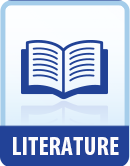|
This section contains 519 words (approx. 2 pages at 300 words per page) |

|
[The critics] who have popularized the theory of the later Richards' conversion [to a chastened theorist] are literary critics who were dismayed by the positivism of the early works, and who applaud in the later works what they take to be a more congenial attitude toward truth and knowledge as constituents of poetry. The general contention of these interpreters is that in Coleridge on Imagination (1934) and his subsequent works, Richards repudiated his earlier positivist view of poetry as pseudo-statement and came to see poetry as a special kind of truth and knowledge, that "unique mode of knowing" so often celebrated—if not defined—by the later New Critics and others. (p. 50)
The passage that is most frequently cited … to support the claim that Richards reversed his position is [one] from The Philosophy of Rhetoric (1936) [in which he defines language as "no mere signalling system"]…. Here again, if the...
|
This section contains 519 words (approx. 2 pages at 300 words per page) |

|


